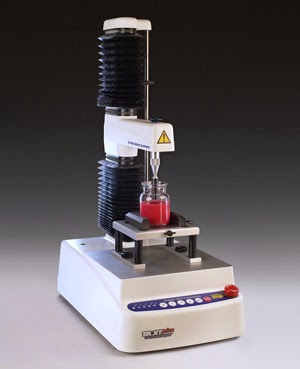 With
four out of five pet owners considering their pet a member of the
family and 79% saying the quality of their pet’s food is as important as
their own, it’s not surprising that the premium sector accounts for 40%
of the $26 billion US pet food market (whilst super-premium accounted
for 10%). Globally the pet care products market is worth almost $100
billion.
With
four out of five pet owners considering their pet a member of the
family and 79% saying the quality of their pet’s food is as important as
their own, it’s not surprising that the premium sector accounts for 40%
of the $26 billion US pet food market (whilst super-premium accounted
for 10%). Globally the pet care products market is worth almost $100
billion.Adding excitement to a pet’s diet via flavours, gravies, look-a-like human recipes, daypart foods (e.g. breakfast food/eggs or appetisers) is a top driver of the best-selling new pet foods. Pet foods are also touting more exotic meats (e.g. wild game, boar, venison, pheasant) and fillets of fish. The majority of “pet parents” are looking for “all natural” and “real meat” whilst eliminating grains, gluten, hormones/antibiotics and artificial colours are other significant trends along with the requirement for “human grade” and “indoor formulations are fast-growing market niches.
Energy bars are among the new pet treats whilst fresh pet food is another sector with dramatic growth. Having a pet over 7 and or catering for pet obesity is a growing concern that has prompted the requirement for functional and therapeutic pet foods. Products to address oral care, coronary, cognitive and immune issues along with skin/coat health are other emerging needs. Products highlighting antioxidants, high protein, probiotics and breed-or size-specific were other important drivers.
Packaged Facts’ Pet Food in the US report projects that domestic pet food sales will increase 16% from 2015 to 2018 to reach $33 billion.
With many pet owners adopting a “nothing but the best” approach to feeding the canines and felines, manufacturers need to ensure that quality is key to their success.
Materials testing equipment
 |
| The TA.HDplus Texture Analyser |
Samples are placed on the base of the analyser or on the lower fixture, or held between the two fixtures. In a typical simple test, the instrument’s arm, which contains the loadcell, moves down to penetrate or compress the product and returns to its initial position according to the procedure specified in advance by the user. Suggested settings, test methods and typical examples, are usually provided for reference and training purposes.
During testing, data which characterises the product is collected as time, distance and force values, at a rate of up to 500 points per second. These values are typically plotted on a Force/Distance or a Force/Time graph and then analysed. The test results can be viewed in spreadsheet, chart or report format. Coefficients of variation (C.V.) account for variations between individual samples. Low C.V.s demonstrate reliability and accuracy of results.
For more information on the types of tests suited to petfood products, see our previous blog post..
For more information on how to measure texture, please visit the Texture Analysis Properties section on our website.
 The TA.XTplus texture analyser is part of a family of texture analysis instruments and equipment from Stable Micro Systems. An extensive portfolio of specialist attachments is
available to measure and analyse the textural properties of a huge range of
food products. Our technical experts
can also custom design instrument fixtures according to individual
specifications.
The TA.XTplus texture analyser is part of a family of texture analysis instruments and equipment from Stable Micro Systems. An extensive portfolio of specialist attachments is
available to measure and analyse the textural properties of a huge range of
food products. Our technical experts
can also custom design instrument fixtures according to individual
specifications.No-one understands texture analysis like we do!
To discuss your specific test requirements, click here...
|





No comments:
Post a Comment